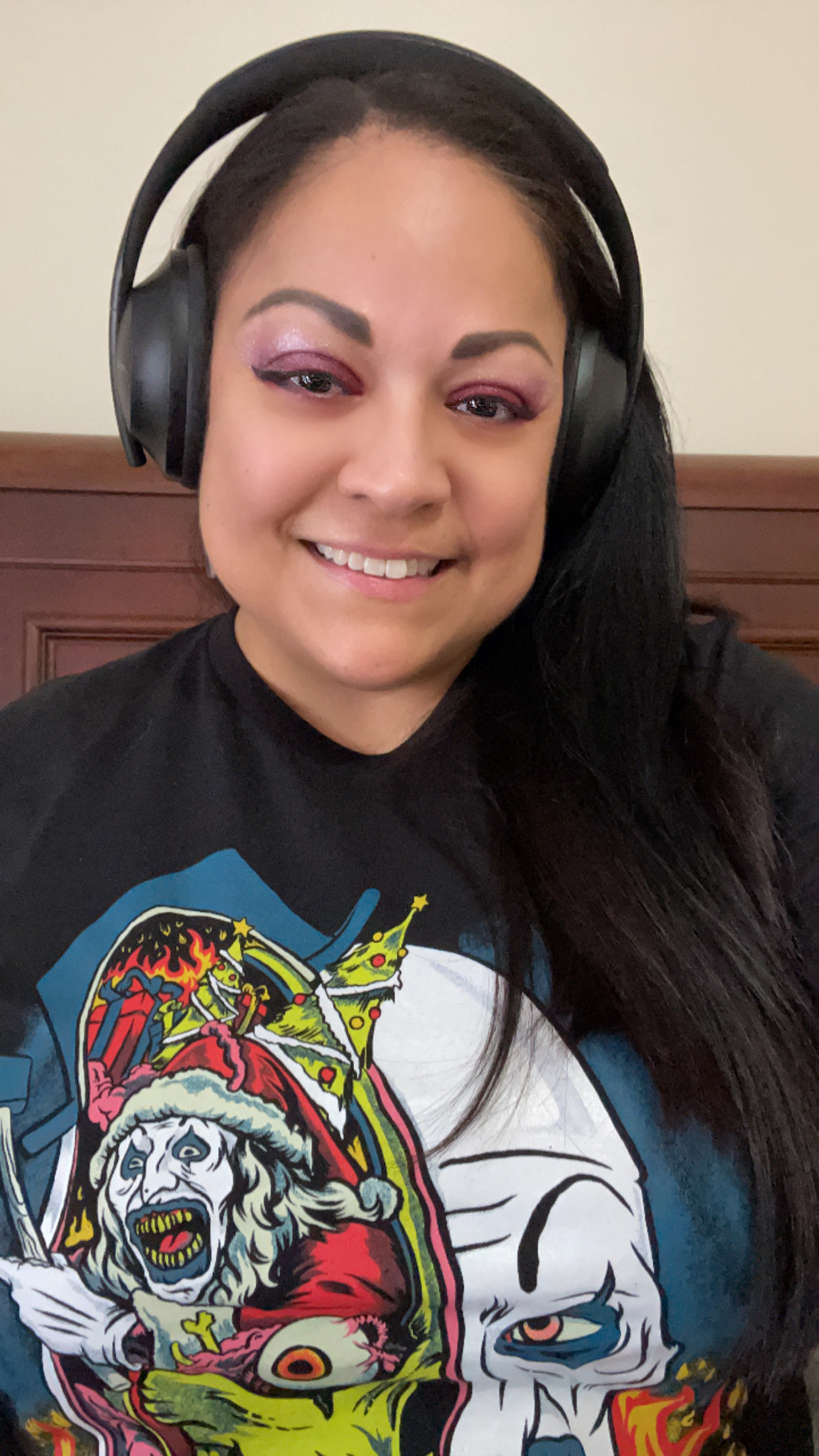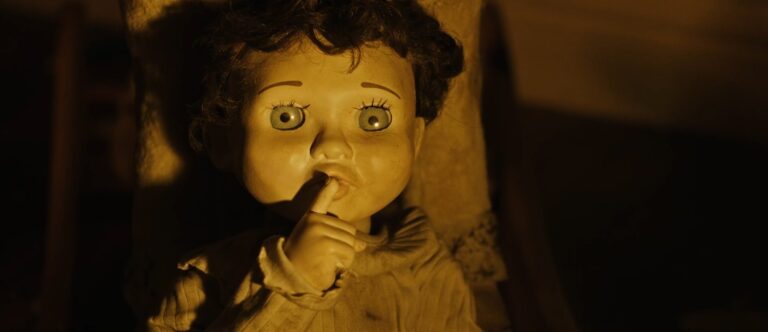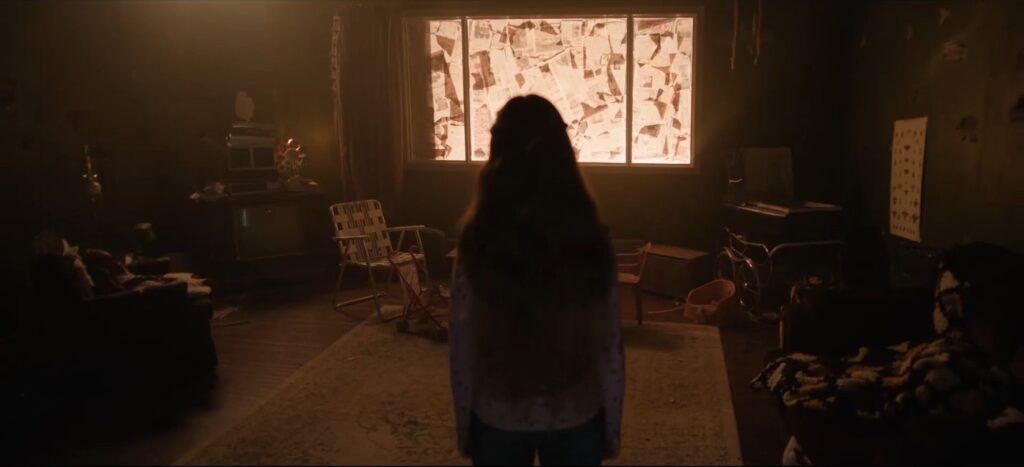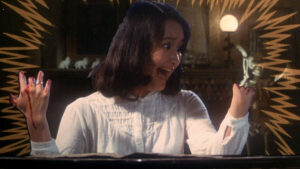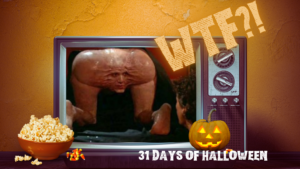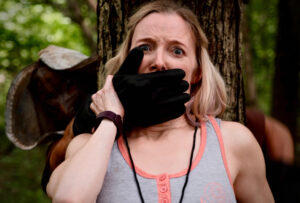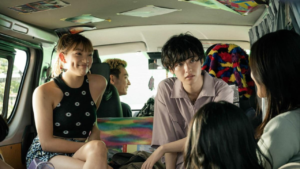I added Tales From the Void to my TV show watchlist in October and picked the perfect time to hit play. I usually wait until I have some quality alone time to watch a whole season of a series. Thus, I added Screambox to my subscription services and quickly decided to binge all six episodes. “Plastic Smile” was my diamond in the rough.
“Plastic Smile” is based on the short story “Betsy the Doll” written by Rebecca Klingel and adapted by Francesco Loschiavo. Horror focusing on dolls isn’t new to the genre, but scary dolls are never dull. Personally, puppets and dolls have always scared me a tiny bit. Yet I enjoy Dolls, Puppet Master, Child’s Play, Dead Silence, The Boy, and especially Poltergeist, whose clown doll malfunctioned and tried to kill a young Oliver Robins. In short, this particular tale left me too stunned to speak. Unexpected and brutal were not words I thought I’d use to describe a story about a young girl and her doll. However, “Plastic Smile” shocked this seasoned horror fan.
About the TV Series
Tales From The Void is a Canadian episodic horror anthology that features stories inspired by some of the best horror tales from Reddit’s r/NoSleep community. The series explores the darker sides of human nature. Episodes are directed by veteran horror filmmakers, including Joe Lynch, Toby Poser, John Adams, Maritte Lee Go, and Loschiavo.
Brief interviews with the original authors of the stories accompany each episode. The Behind the Scenes Podcast allows you to go behind the curtain and learn more about the individuals who created the series. David Cummings, the host of The NoSleep Podcast and one of the executive producers, speaks with the writers and directors who brought these chilling tales to life on screen.
Plastic Smile
First, I was drawn to this particular episode of Tales From the Void because of Toby Poser and John Adams. I am a fan of the Adams family films, which haven’t failed to entertain me. I keep returning because of their music, artistic style, original stories, and unique eye. They bring “Betsy the Doll” to life. After reading a brief description, I watched “Plastic Smile” twice.
This episode follows Abigail, her two addicted parents, and her only friend, a baby doll named Betsy. The intro features the adult Abigail returning home, where an officer guards the entry to her old apartment. Quick flashes make it clear that this is an unhappy place, and her mind begins to wander.
Personally, I relate to stories from a child’s perspective in unfit homes. Unfortunately, there’s an abundance of horror in the real lives of children. Author Klingel states that the fog of childhood can conceal a lot of what we don’t understand. Furthermore, remarking that humans are the monsters in the real world. This idea is universally relatable.
Abigail at Home
Abigail is very young and is often left alone. She cares for herself and likes to wander in the woods behind her apartment complex. Her mother is in a sickly shape from drug addiction, and her boyfriend seems kind, but he’s an addict as well. With no other adults around, she is left to her own devices unless it’s convenient for her mother.
Immediately, we see that her doll, Betsy, opens and closes her eyes and changes facial expressions. There are no surprises there. I’ve always been drawn to stories about haunted and possessed dolls, but Betsy is different. Although the doll scurries in the shadows and changes positions, Betsy does not appear threatening.
Abigail reads the same story repeatedly from what’s shown to be her only book. It’s plain to see why. I myself had few toys as a child, and books were the perfect place to escape. I would reread the same books and try to imagine an enchanted life. Abigail does the same. She reads passionately about a magical place in a forest where a fairy leads her into a dark tunnel. She fantasizes about this mystical spot, and the thought helps her sleep at night.
The Magical Woods
When she stumbles upon a beautiful spot in the woods, she thinks she’s found her book’s home. Other children stay away, but Abigail has no fear. Toby Poser and John Adams brought that storybook to life. The sun shines brightly through a hole in the canopy of the woods. The beams of light highlight every tiny thing floating in the air, the river’s crispness, the vegetation’s color, and everything alive all at once. And just beyond the tree line, the river leads into a dark tunnel that seems to be pulling her in innocently. Abigail can think of only one place.
The reality for Abigail is a mother who guilts her child to pity her because of sickness. A mother who would pawn and sell off every last thing, including a little girl’s storybook, to buy more poison. She views this tunnel as a way out. Seeing that we already have a grown Abigail to start this episode, we know she survives this hell. The worst things she faced lay here in her old home, and this wooded playground was her safe place.
And She Lived
I was hoping to see her make peace with her childhood. People like Abigail deserve a happy ending. However, this is horror; just like life, it will pull the rug right out from beneath you. This short 33-minute episode gave us all we needed and didn’t ask for. I was aghast, and it was all over before I could collect any thoughts on the end reveal.
“Plastic Smile” is my favorite episode of the series. The use of sound, music, lighting, an excellent setting, and a great child actor, Beatrice Schneider, together made for a perfect short. It was raw, dark and unforgiving. I especially like the imagery used to show Abigail’s childhood view. Films like Tigers Are Not Afraid and Rita come to mind. Overall, it’s an incredible story, and I recommend you check it out on Screambox.
